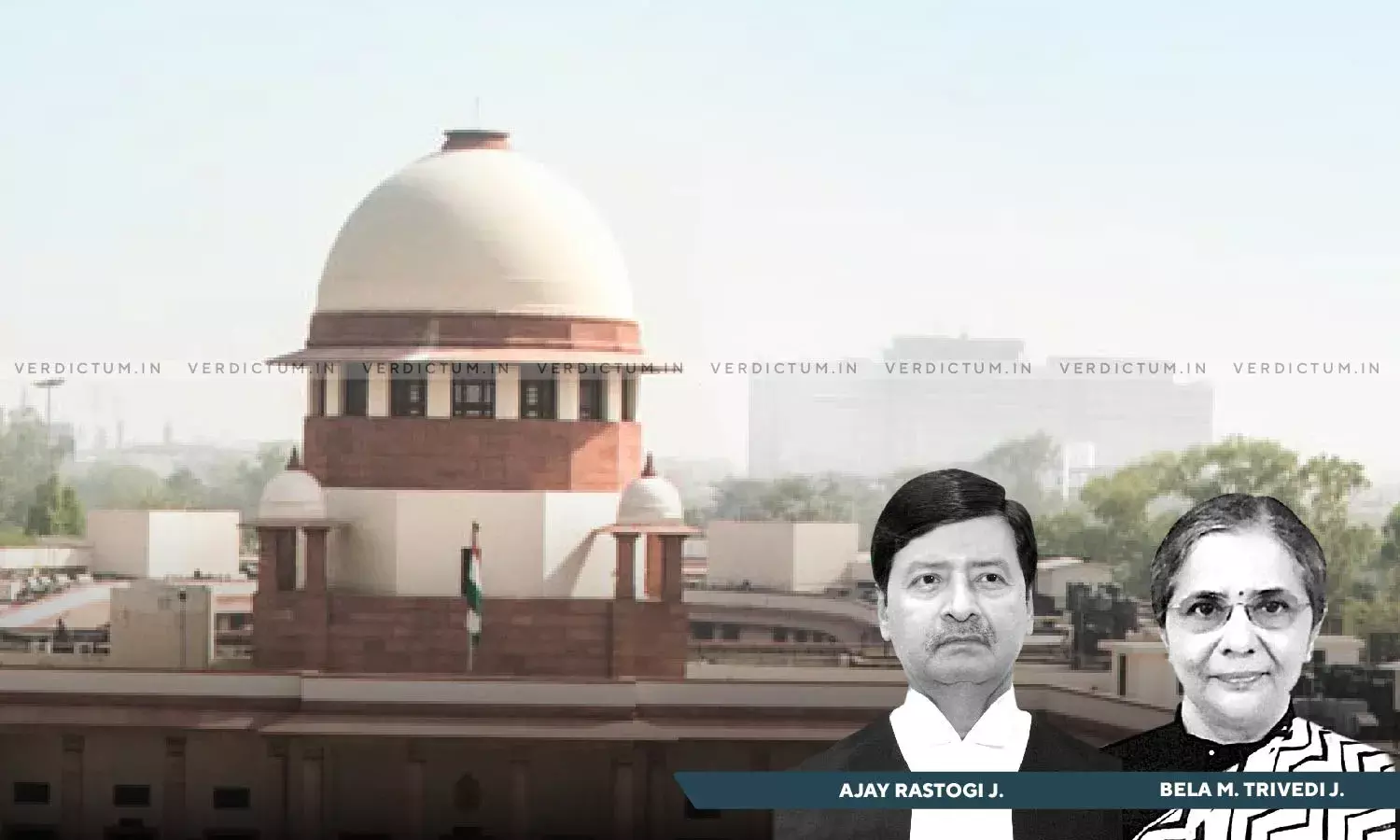Consumer Protection Act- In Summary Proceedings, Commission Can’t Entertain Complaints Of Highly Disputed Questions Of Facts: SC
The Supreme Court has held that when proceedings before the Commission under the Consumer Protection Act is summary in nature, the complaints involving highly disputed questions of facts or the cases involving tortious acts or criminality like fraud or cheating, cannot be decided by the Forum/Commission.
The Bench of Justice Ajay Rastogi and Justice Bela M. Trivedi observed that “The proceedings before the Commission being summary in nature, the complaints involving highly disputed questions of facts or the cases involving tortious acts or criminality like fraud or cheating, could not be decided by the Forum/Commission under the said Act.”
The Bench made the observation while deciding the issue of whether the Commission/Forum under the Act could have entertained the complaint involving highly disputed questions of facts or involving allegations of tortious acts, the proceedings before the Commission/Forum being summary in nature.
Advocate K.K. Mani appeared for the appellant and Advocate Krishan Kumar appeared for the respondent.
In this case, the appeal was preferred against the order of the National Consumer Disputes Redressal Commission, Circuit Bench at Chennai (NCDRC) whereby the decision of the State Commission to re-credit the amount to complainant was upheld.
The complaint was filed before the State Commission against the appellants to re-credit rupees eight lakhs covering two demand drafts into D-Cube Commission (P) Ltd.'s current account. The demand drafts were issued in the name of “D-Cube Construction” and a current account was opened by one of the directors as the proprietor of “D-Cube Construction” relying upon the letter written on behalf of the “D-Cube Constructions (P) Ltd.” I.e. the complainant.
The Apex Court said that when the Current Account was opened by R. Thulasiram as the proprietor of “D-Cube Construction”, relying upon the letter written on behalf of the “D-Cube Constructions (P) Ltd.”, and when the disputed two drafts in question which were in the name of “D-Cube Construction”, were credited in the account of “D-Cube Construction”, it could not be said that there was any willful default or imperfection or short coming so as to term it as the deficiency in service on the part of the appellant-bank within the meaning of Section 2(g) of the Act.
“The “deficiency in service”, as well settled, has to be distinguished from the criminal acts or tortious acts. There could not be any presumption with regard to the wilful fault, imperfection, shortcoming or inadequacy in the quality, nature and manner of performance in service, as contemplated in Section 2(1)(g) of the Act. The burden of proving the deficiency in service would always be upon the person alleging it.” said the Apex Court.
The Court added that the respondent had miserably failed in discharging his burden to prove that there was a deficiency in service on part of the employees of appellants- bank within the meaning of Section 2(1)(g) of the Act.
"...when the allegations made in the complaint involved highly disputed questions of facts, the Commission could not have adjudicated upon the complaint.", the Court observed.
Accordingly, the appeal was allowed, and the impugned orders of State Commission and NCDRC were quashed and set aside
Cause Title- The Chairman & Managing Director, City Union Bank Ltd. & Anr. V. R. Chandramohan




